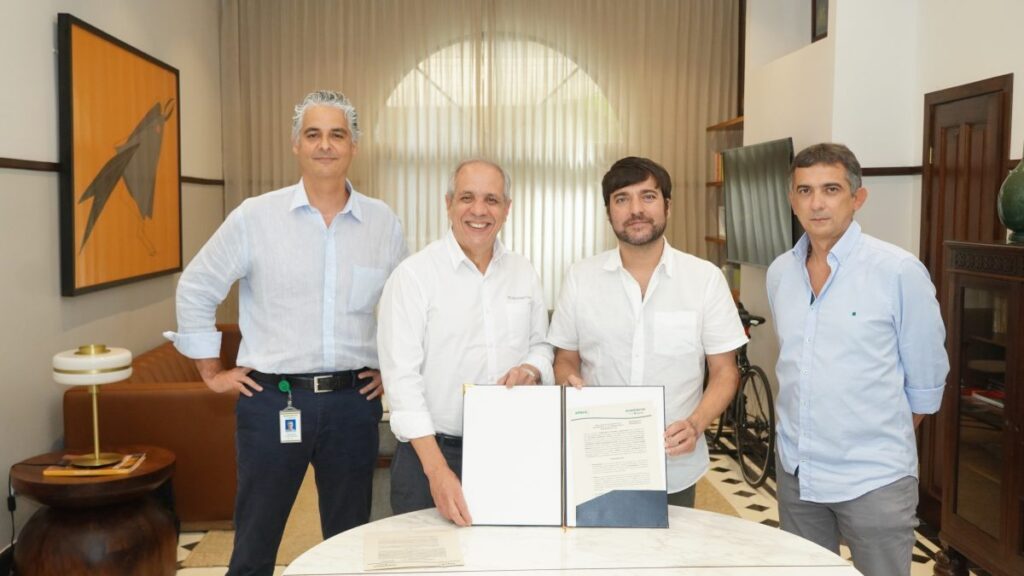Renewable ammonia in Colombia
By Julian Atchison on May 11, 2022
Colombia’s first offshore wind farm to power ammonia production in Barranquilla

Colombian fertiliser producer Monómeros has signed an MoU with local power utility APBAQ to develop a renewable ammonia project (Spanish language) near the city of Barranquilla, on Colombia’s Caribbean coast. Ammonia production will be powered by a 350 MW, offshore wind farm backed by Copenhagen Infrastructure Partners, which is expected to begin generating power in 2026. This March the Colombian government launched an ambitious offshore wind energy roadmap (Spanish language), with much of the 50 GW potential located on the Caribbean coast.
Monómeros currently has capacity to produce up to 1.3 million tonnes of ammonia per year at its Fertinitro complex in Barranquilla. The partners see huge potential for an expanding offshore wind industry to power renewable ammonia production in Barranquilla, overcoming the twin problems of soaring gas prices and an unreliable national electricity grid. The partners also consider reducing Colombia’s reliance on fossil-based ammonia imports another top priority. Indeed, we’ve seen similar reasoning behind renewable ammonia announcements out of Paraguay, Bolivia, Chile and Brazil.
Other South American updates: Paraguay and Chile
In Paraguay, project developer ATOME Energy has advanced plans for a second renewable ammonia production plant in the country. ATOME has secured a long-term power purchase agreement from Paraguay’s state electricity utility (ANDE) for 60 MW of hydroelectricity per year that will power a to-be-built ammonia production plant in Villeta, Paraguay’s main export port.
Details are limited, but an FID on the plant is due this year, with production (55,000 tonnes per year) to begin within three years. ATOME’s other Paraguayan project – a 250 MW ammonia production plant powered by the Itaipu Dam – is under development, with a long-term power supply contract already locked in.
In Chile, Enaex and ENGIE’s HyEx project has received environmental approval from national authorities. The renewable ammonia production plant will feed the manufacture of mining explosives, with Enaex currently having to import 100% of its ammonia requirements.